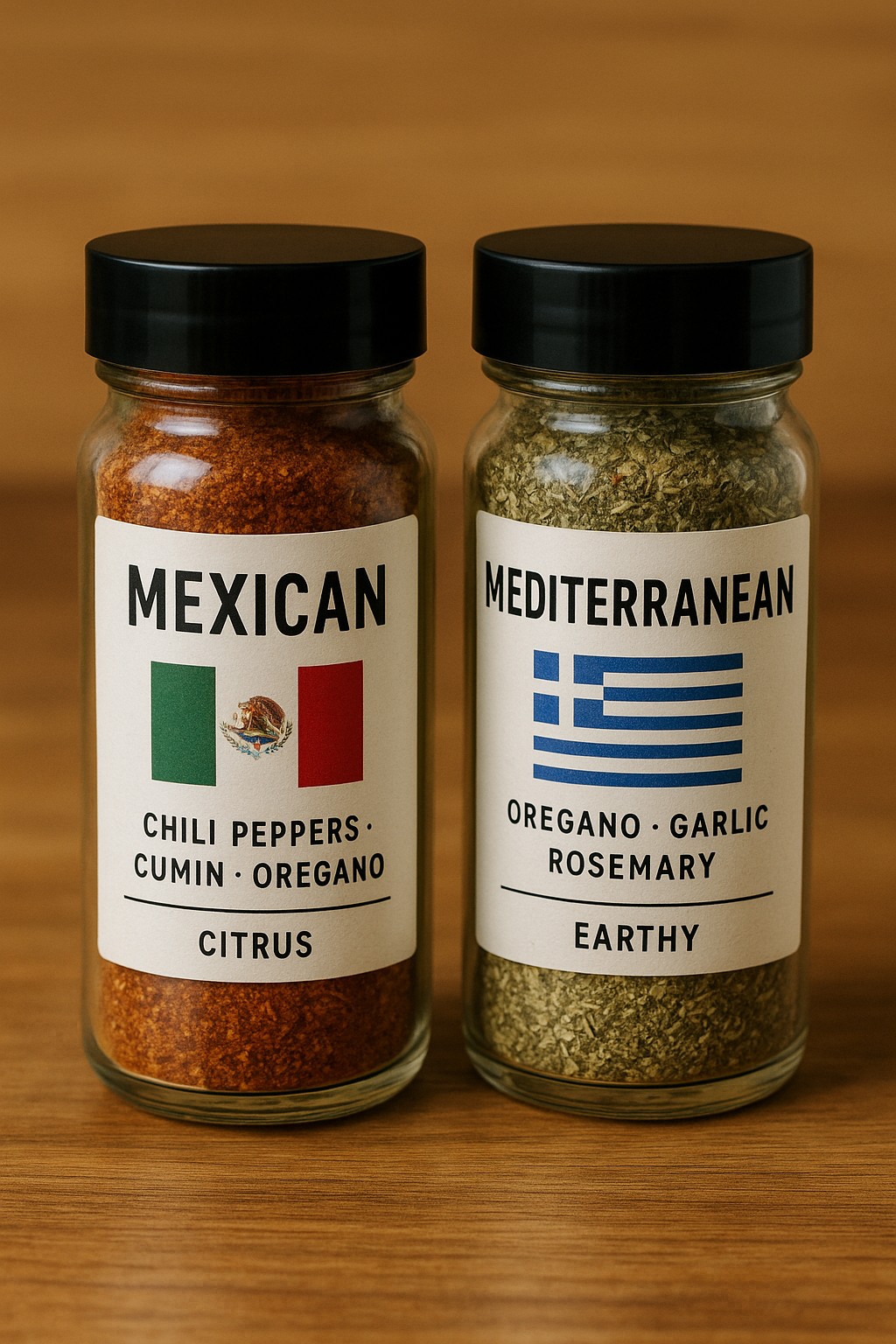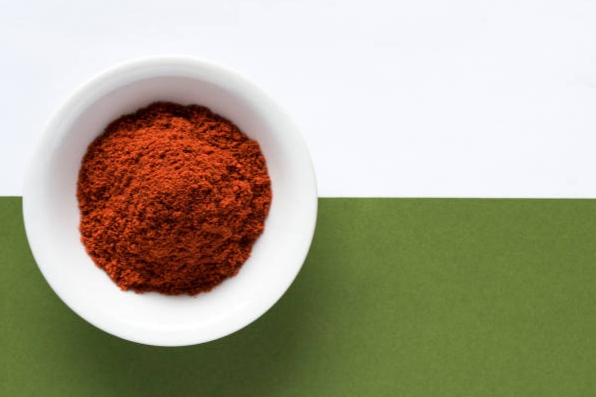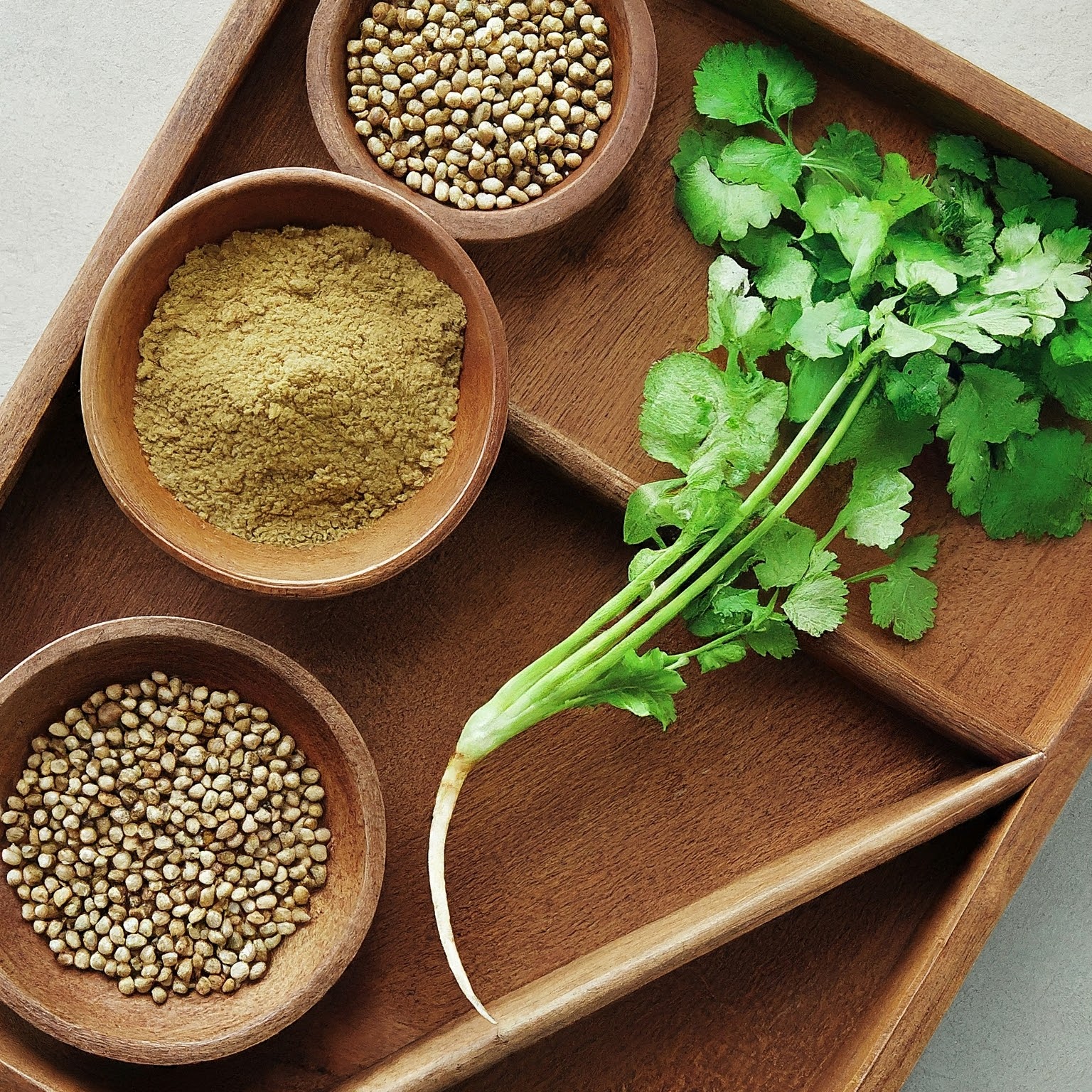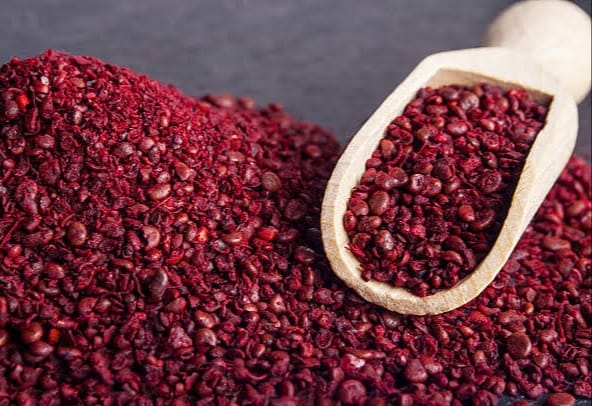Barley tea is a popular East Asian beverage made from roasted barley grains. It has a light amber color and a mild, toasted flavor with a hint of bitterness. Often enjoyed both hot and cold, it’s caffeine-free, low-calorie, and packed with antioxidants.
People drink barley tea not just for its taste, but also for potential health benefits like aiding digestion and promoting relaxation. Essentially, it’s like the cozy, no-caffeine cousin of your regular tea.

Barley Tea: A Toasty Delight
The defining characteristic of barley tea is its toasty, nutty flavor, often described as having a pleasant hint of bitterness. The roasting process brings out the inherent sweetness of the barley, creating a well-balanced and satisfying taste. Unlike traditional teas, barley tea is naturally caffeine-free, making it a perfect choice for those seeking a calming and relaxing beverage throughout the day.
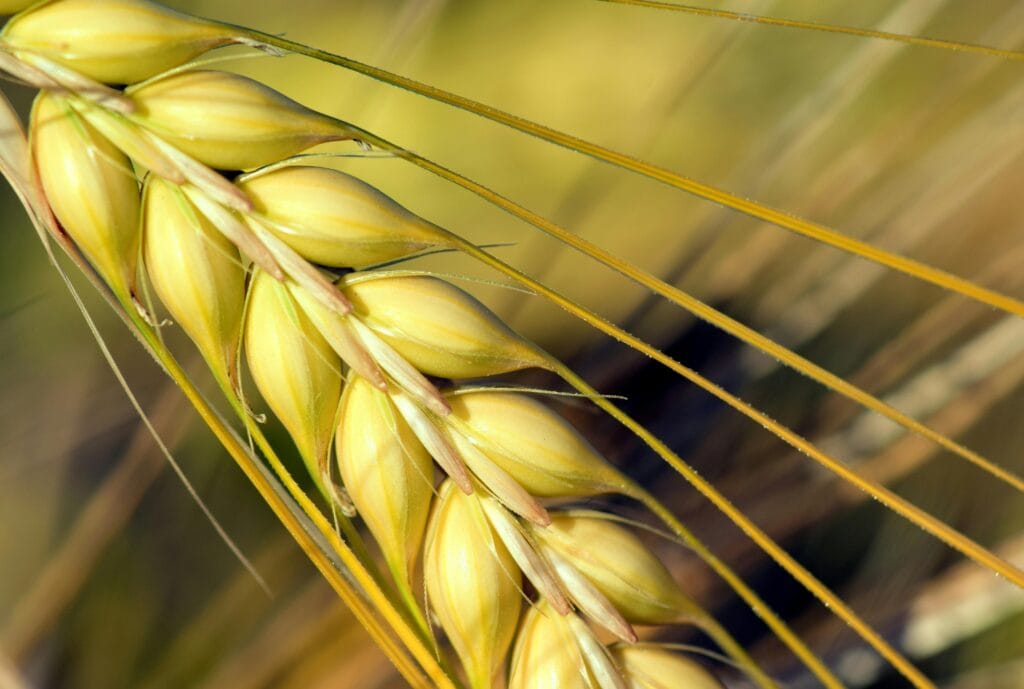
Brewing Your Cup of Comfort
It can be prepared in several ways, making it easily adaptable to your preference. Traditionally, whole roasted barley kernels are boiled in water for a specific time, then strained and enjoyed hot or cold. Alternatively, pre-ground barley can be steeped in hot water for a quicker brewing process. For convenience, barley tea bags are widely available, offering a hassle-free way to enjoy this delightful beverage.
A Cultural Staple:

It holds a significant place in East Asian cultures. In Japan, it is known as “mugicha“ and is a popular summertime refreshment, often served chilled. In Korea, called “boricha,” it’s consumed year-round, hot in winter and cold in summer, often replacing water at home and restaurants. It’s also considered a healthy and comforting drink suitable for all ages.
Barley Tea Benefits
While research is ongoing, barley tea has been associated with various potential health benefits:
1. Rich in Antioxidants: It contains antioxidants that may help combat oxidative stress and potentially protect cells from damage.
2. Heart Health: Studies suggest regular consumption might contribute to improved heart health by potentially lowering cholesterol levels.
3. Digestive Aid: The soluble fiber content may support regularity and potentially ease constipation.
4. Weight Management: It may promote feelings of fullness and could potentially contribute to weight management efforts.
5. Blood Sugar Regulation: Early research suggests barley tea may help regulate blood sugar levels, but more studies are needed to confirm its effectiveness.
6. Bone Health: It contains minerals like calcium and magnesium, which are important for bone health.
7. Hydration: A delicious and caffeine-free alternative to sugary drinks, aiding in hydration.
8. Detoxification: It may act as a natural diuretic, potentially aiding in flushing toxins and supporting kidney function. However, more research is needed to confirm its effectiveness in detoxification.
9. Skin Health: The antioxidants may contribute to healthy skin by potentially combating free radicals and reducing inflammation. However, further studies are needed to understand the full extent of its impact.
10. Improved Sleep: Barley tea may promote relaxation and potentially improve sleep quality.
11. Immune Support: It contains vitamins and minerals that may help strengthen the body’s defense system.
12. Stress Relief: It may have calming properties that could potentially help alleviate stress and anxiety.
13. Cognitive Function and Inflammation: While early research suggests potential benefits in these areas, more studies are needed to confirm the effectiveness of barley tea in improving cognitive function and reducing inflammation.
14. Providing essential nutrients: Barley is a good source of vitamins and minerals, including fiber, manganese, and selenium.
Beyond the Cup
Barley tea transcends its role as a beverage. In some cultures, it is used as a cooling compress and a natural hair rinse due to its purported soothing and nourishing properties.
Embrace the Warmth
Whether you’re seeking a comforting hot drink on a chilly day or a refreshing alternative to traditional teas, barley tea offers a unique and flavorful experience. With its rich cultural heritage, potential health benefits, and versatility, it invites you to explore a world of taste and tradition in every cup.
Barley Tea Recipe
Barley tea, with its toasty aroma and subtle sweetness, can be a delightful beverage enjoyed hot or cold. But achieving the optimal taste and aroma requires mastering the brewing method. Here’s a detailed guide to brewing perfect barley tea:
Choosing Your Barley:
- roasted barley: This traditional option offers the most control over the brewing process and allows for multiple uses of the grains. Choose hulled barley for a lighter flavor or hulled barley for a more robust taste.
- Ground barley: Perfect for quicker brewing, ground barley is readily available but offers less control over flavor strength.
- Barley tea bags: The most convenient option, ideal for individual servings, but may not offer the same depth of flavor as loose barley.
Hot Brewing
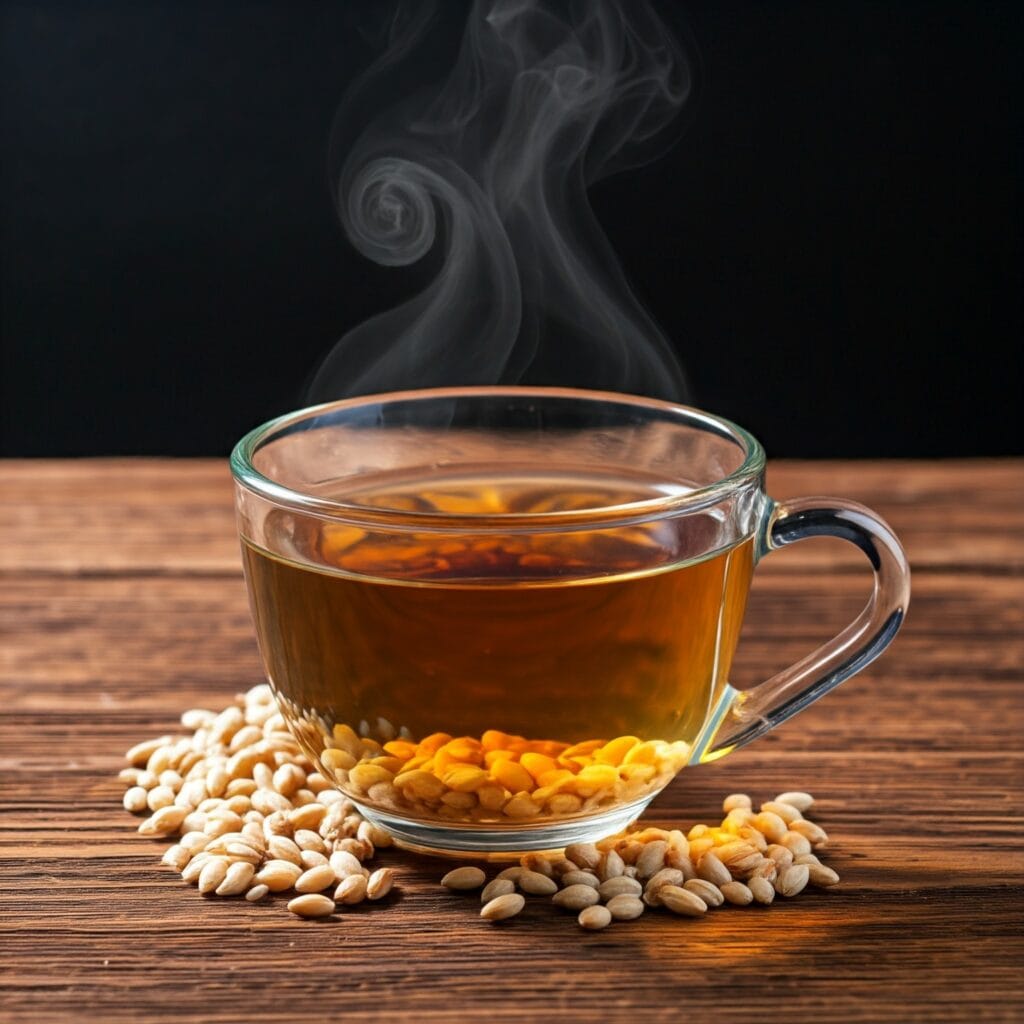
- Measure: Use 1 tablespoon of whole roasted barley or 1-2 teaspoons of ground barley per cup of water.
- Heat: Bring water to a boil in a pot or kettle.
- Steep: For whole barley, remove from heat, add barley, and steep for 10-15 minutes. For ground barley, add it to the boiling water and simmer for 5-7 minutes. For tea bags, follow the package instructions.
- Strain: Pour the tea through a fine-mesh strainer to remove the barley.
- Enjoy: Drink hot or let cool slightly before adding honey, lemon, or ginger for additional flavor (optional).
Cold Brewing

- Preparation: Combine 2 tablespoons of whole roasted barley or 2-3 teaspoons of ground barley with 2 cups of cold water in a pitcher.
- Steep: Cover and refrigerate for at least 8 hours, preferably overnight, for optimal flavor extraction.
- Strain: Remove barley and enjoy chilled. You can add ice cubes or slices of fresh ginger or lemon for an extra refreshing touch (optional).
Barley Tea Nutrition Facts
Barley tea is a low-calorie beverage, and its nutritional values can vary depending on the preparation method. Here are some approximate values for a typical serving of barley tea (about 100 ml):
| Nutrient | Amount |
| Calories | 2 kcal |
| Carbohydrates | 0.5 g |
| Fiber | 0.1 g |
| Protein | 0.1 g |
| Fat | 0 g |
| Antioxidants | Present |
Barley tea is essentially free of calories and is a great caffeine-free alternative to sugary drinks. It’s also rich in antioxidants, which help protect the body against free radicals.
Using Specialized Equipment:
- Tea Infuser: Fill the infuser with loose barley and add it to a pot of boiling water. Steep for the desired time and remove the infuser before serving.
- Tea Brewer: Follow the specific instructions for your brewer, adjusting the amount of barley and brewing time as needed.
Troubleshooting Tips:
- Weak tea: Increase the amount of barley or extend the steeping time.
- Bitter tea: Use less barley or reduce the steeping time.
- Cloudy tea: Use filtered water and ensure the barley is properly roasted and hasn’t gone stale.
Additional Tips
- Roasting your own barley: For a truly personalized experience, you can roast barley at home in a dry frying pan until fragrant and golden brown.
- Re-using barley: Once used for hot brewing, whole roasted barley can be simmered for additional water and a lighter-flavored second brew.
- Experiment with flavors: Once you’ve mastered the basic brewing process, feel free to experiment with adding spices like cinnamon or star anise, herbs like mint or lemongrass, or fruit slices like orange or apple for a unique and customized taste.
By following these techniques and experimenting with different brewing methods, you can unlock the full potential of barley tea, making it a delicious and healthy addition to your daily beverage routine.
Conclusion
Barley tea, with its unique flavor profile, rich cultural heritage, and potential health benefits, offers a delightful and versatile beverage experience. Whether enjoyed hot or cold, it’s a comforting and caffeine-free choice for any time of day. From its calming properties to its potential contribution to overall well-being, it invites you to explore a world of taste and tradition in every cup.
Call to Action
Ready to embark on your barley tea journey? Here are some ways to get started:
- Visit your local Asian grocery store or online retailer: Explore the different types of barley tea available and choose the one that best suits your preference.
- Experiment with brewing methods: Try both hot and cold brewing techniques and adjust the steeping time to find your perfect flavor strength.
- Get creative: Don’t be afraid to experiment with additional flavors like spices, herbs, and fruits to personalize your barley tea experience.
- Looking for more herbal tea options? Check out our moringa tea and Oregano Tea Benefits for another flavorful and healthy choice to add to your tea collections.
- Share your thoughts: Leave a comment below and tell us about your experience with barley tea. What are your favorite ways to enjoy it?
We hope this blog post has inspired you to explore the world of barley tea. So, grab a cup, brew a pot, and embrace the warmth and unique flavor of this traditional beverage!
FAQ
Q: What is barley tea?
A: Barley tea is a popular East Asian drink made from roasted barley kernels. It has a light amber color and a mild, toasted flavor with a hint of bitterness.
Q. How do you make barley tea?
A: To make barley tea, steep roasted barley kernels in hot water. You can use premade tea bags or prepare it from scratch by roasting barley and then steeping it in boiling water for about 15-20 minutes.
Q: Can barley tea help with digestion?
A: While traditional medicine has used barley tea to combat diarrhea and fatigue, scientific evidence supporting these claims is limited.
Q: Is barley tea suitable for people with gluten sensitivity or celiac disease?
A: Barley contains gluten, so it’s not suitable for people with gluten sensitivity or celiac disease. If you have these conditions, it’s best to avoid barley tea.
Q: Can I sweeten barley tea?
A: Traditionally, barley tea is not sweetened. However, you can add a small amount of honey, sugar, or lemon for added flavor if you prefer.
Q: Are there any side effects of drinking barley tea?
A: Barley tea is generally safe to consume, but some people may experience allergic reactions if they are sensitive to barley or gluten.
